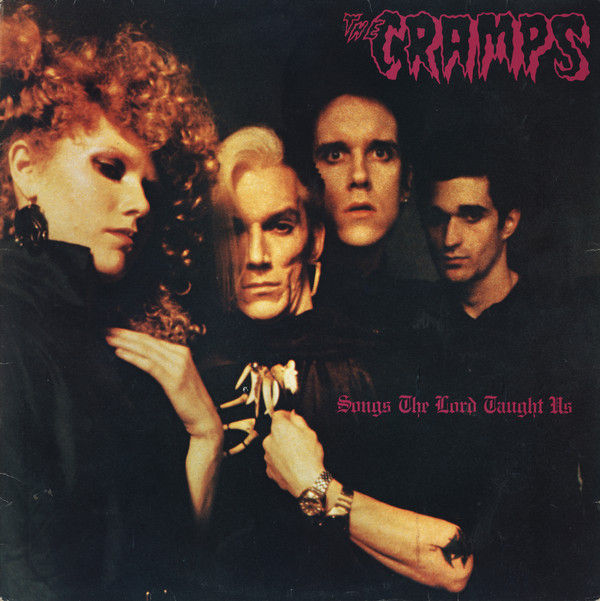THROWBACK: The Cramps -- Songs The Lord Taught Us: Review
- Benji

- Oct 26, 2020
- 3 min read

The Cramps -- Songs The Lord Taught Us
[I.R.S.]
The Cramps’ debut Songs the Lord Taught Us shook the world with its gothic presentation and spooky song topics that clashed with the jitterbug surf rock and rockabilly influences it spawned from. The album exists as a living paradox.
Songs the Lord Taught Us by the Cramps had two the right objectives that every rock album in the early 80’s underground set out to do: make music for the youth only and play rock n roll for the sake of rock n roll. With these two objectives, The Cramps set out with this in mind on their humble debut and it managed to nail both of those things, single-handedly pioneer the edgy rock genre “Psychobilly”, and create one of the grooviest and spookiest surf rock records ever.
“Psychobilly” is a cannibalization of the rockabilly sound from Elvis and Jerry Lee Lewis, the surf garage razor edges of The Sonics or The Seeds, and the eve of gothic counter-culture in the eighties. The Cramps shared an outward dislike for the proggy self-indulgence of seventies pop rock and even though they borrowed a lot from much older rock influences, they were very much a staple of the New York punk scene in the late seventies.
However, before the Cramps even arrived in New York City, it was just daydream in the minds of two record collectors in Sacramento who decided to drop their jobs and move to Ohio. They picked up stage names there: Lux Interior, the singing frontman who got his name from a car commercial, and Poison Ivy, the lead guitarist who supposedly received her name in a dream. Soon after their arrival in Akron, they stepped up and moved to New York City in 1975 where they would join the budding punk scene.
In New York, The Cramps would regularly play at CBGB’s music club (Country, BlueGrass, and Blues) where they would develop and gig in Soho with legendary peers like Talking Heads, Patti Smith, and Blondie. In this environment, The Creeps were able to experiment and hone their sound, playing with their elaborate and edgy stage presence. Even though the band shifted guitarists, bassists, and drummers more times than you can count, power couple Lux and Poison Ivy always led the charge.
Having started in gigging in NYC in 1975, it was five years before they finally landed a record deal with I.R.S. Records. The lineup going into the studio was Bryan Gregory on backing guitar, Nick Knox on drums, and of course the dynamic duo themselves. Together they produced Songs The Lord Taught Us, released sometime in 1980 complete with blood-curdling sound, eerie presence, and edgelord album cover.
The pummeling march of the opener “TV Set” opens like a sixties surf rock offshoot but as the liquid guitar chords enter, a sinister foreign vibe enters and the unique darkness of the Creeps makes itself clear. Unlike the teenie-bopper romps of sixties rock n roll, the gothic lyrics of the Creeps were incessantly spookier, in defiance of the tame, reserved lyrics of the past.
Their hit song “I Was A Teenage Werewolf” is about the 1957 horror film of the same name, making light of the creepiness of horror pop culture. The groovy “Zombie Dance” makes fun of the high school sockhops of post-war America, painting them all as the dancing undead: “At the Zombie Dance, Nobody moves, They tap their toes, Yeah, wiggle their ears to get in the groove”. It’s campy spooks mixed with groovy rockabilly to make a fun subversion of surf culture.
The Cramps’ cover of the 1965 garage classic “Strychnine” written by the Sonics gives it another air of heft with the sprinkling of cold-blooded quirk it needed. Overall, Songs The Lord Taught Us does exactly what it needs in thirty eight minutes with 13 fun romps into psychobilly, teasing a genre yet to come and making you mashed potato in the spookiest of ways. [Benji O’Connor]
Listen To: “TV Set”
RIYL: The Sonics, Elvis Presley, Talking Heads



Comments